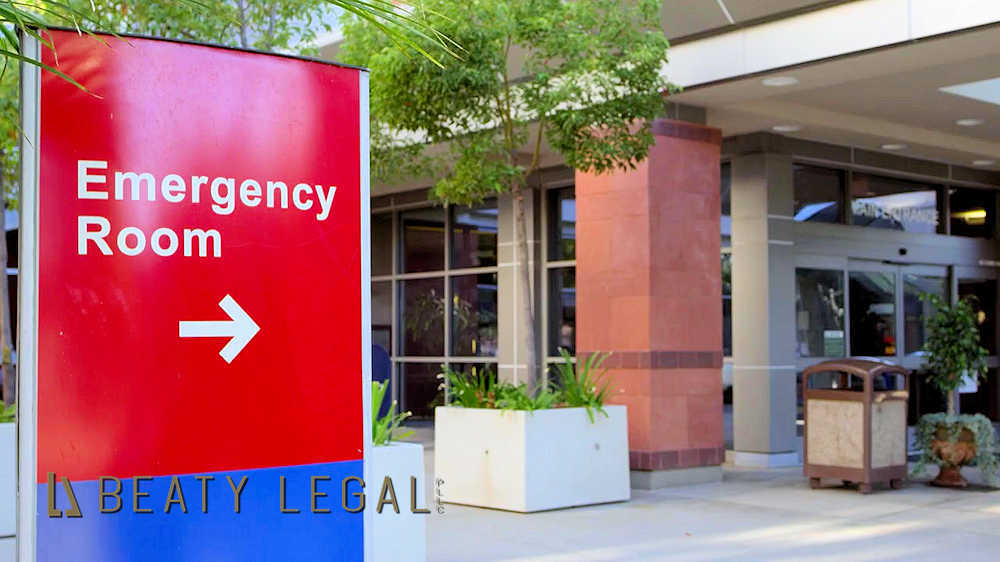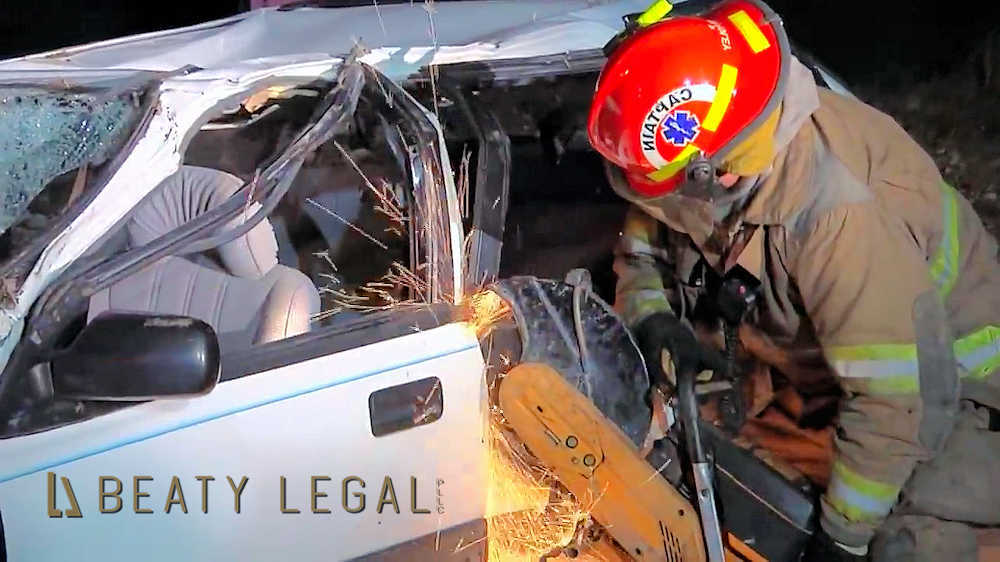Menu

Automated vehicles are increasingly being developed for commercial use, and while they have been heralded as a potential solution to traffic congestion and roadway accidents, there are also numerous contentious issues associated with their introduction. According to a 2018 study conducted by the Insurance Institute for Highway Safety, 94% of all motor vehicle crashes involve human error. As autonomous driving technology continues to advance, an important question arises: could autonomous cars decrease accident rates? This article will examine this controversial perspective from various angles, exploring both the benefits and drawbacks of automated vehicles in order to shed light on the debate surrounding their introduction.

The potential advantages of automated vehicles in terms of road traffic safety are worth investigating. Autonomous cars have the potential to significantly reduce human error, which is responsible for the majority of crashes worldwide. Automated systems such as driverless insurance and driverless navigation could potentially lower the rate of accidents due to their ability to detect objects quickly and respond faster than a human. Furthermore, these systems could also be programmed to drive defensively and follow all laws and regulations more strictly compared to a human driver.
Computer vision technology used in self-driving cars can make them better than humans at avoiding obstacles, recognizing traffic signs, and anticipating dangerous situations on the roads. This would help reduce vehicle collisions by allowing autonomous vehicles to navigate safely without any interference from human drivers. Additionally, sensors like LIDAR allow autonomous cars to map out their surroundings with high accuracy, so they can maneuver around obstacles with ease.
Autonomous vehicles also offer other benefits such as increased fuel efficiency through smart routing technologies that optimize routes based on real-time traffic data, reduced parking congestion due to advanced parking algorithms that can quickly identify available spots in crowded areas, and improved mobility for individuals who may not be able to drive themselves due to age or disability. These advantages make it clear that autonomous cars have the potential to improve road safety conditions dramatically if implemented correctly.

Anecdotal evidence suggests that, despite their potential advantages, autonomous vehicles may not be able to reduce the number of accidents as much as initially thought; for instance, a recent study found that self-driving cars in a simulated environment performed worse than human drivers when it came to avoiding collisions. This could lead to decreased consumer confidence in the technology and make people less likely to invest in or use autonomous cars. Additionally, ethical dilemmas arise when considering how an autonomous car should respond if faced with an unavoidable accident involving pedestrians or other vehicles - they may have difficulty determining who should be prioritized.
| GET YOUR FREE CASE EVALUATION |
| SHEA | BEATY - Personal Injury Lawyer Sherman, Tx |
The issue of liability is also a factor which could affect the safety of autonomous cars on the road. If an accident occurs between two self-driving vehicles, or between one and a human driver, it is unclear who would be held responsible for any damage that might occur. Furthermore, insurance companies may struggle with how to accurately assess risk for vehicles whose behaviour cannot be predicted with any certainty.
In order to develop effective regulations for self-driving cars and ensure public safety on the roads, legal and regulatory challenges must first be addressed. This includes defining standards for testing and certification of automated driving systems before they can be used by consumers. It also requires establishing rules concerning issues such as liability and accountability so that victims of accidents will have access to appropriate forms of recourse.

Navigating the legal and regulatory landscape of autonomous vehicles presents a complex challenge, with many potential pitfalls to be encountered along the way. In particular, determining who is liable in the event of an accident involving an autonomous vehicle has been a major point of contention. Issues such as manufacturer liability or responsibility for data access have also raised concerns. Moreover, there are worries about how laws governing driverless cars might infringe upon consumer rights or privacy protections. The implications for these issues must be understood before any policies can be put in place to ensure that all parties involved are fully protected.
The potential for infringement on consumer rights when it comes to autonomous vehicles is significant. Who owns the data collected by sensors, cameras, and other technology used to power driverless cars? Beyond this question lies another: what kind of access will third-parties have to this data? Without proper regulation, individuals could find their private information exposed without their consent or knowledge. Therefore, legislators must ensure that adequate measures are taken to protect citizens' data from unauthorized use and exploitation.
As autonomous vehicles become more commonplace, developing regulations that protect both manufacturers and consumers will be essential in order to balance safety with privacy considerations. Thoughtful consideration should be given before implementing any new policy framework that outlines rules surrounding accident liability and data access so as not to leave any party unprotected from unexpected consequences arising from situations involving driverless cars. Moving forward into this brave new world of automated transportation requires thoughtful planning and legislation in order to avoid serious issues down the road. As such, examining the possible privacy implications associated with driverless cars is paramount before allowing them onto our roads and highways.

Examining the possible privacy implications associated with driverless vehicles is essential to ensure all parties are adequately protected. Privacy concerns arise from the data sharing between autonomous cars and their operators, as well as from the data that is collected by these vehicles. The potential use of this information for commercial purposes, such as targeted ads or private companies using it to make decisions about drivers' rights, raises substantial ethical questions related to individual autonomy. Additionally, it is likely that third-party entities could potentially access this data and use it in ways that were never intended by its original creators. This has raised numerous legal challenges related to who should have access to this type of information and under what circumstances they can do so.
In order to address these issues effectively, a comprehensive framework must be established in regards to how autonomous vehicle data is shared and used. This would involve regulations on when and how this information can be collected, stored, shared, sold or otherwise used by third-parties without explicit consent from its owners. It should also include specific protocols for ensuring any sensitive personal information remains secure at all times. Furthermore, there needs to be clear guidelines regarding who has the right to access such data and under what conditions they can do so without infringing upon individuals' privacy rights.
The development of effective strategies for protecting the privacy of those utilizing driverless cars will require collaboration between multiple stakeholders including governments, car manufacturers and technology companies in order to ensure all parties' interests are adequately taken into account while still allowing individuals an appropriate level of control over their own data usage practices. As such, designing robust solutions that protect people's right to privacy while guaranteeing safety benefits for everyone involved is paramount in making sure autonomous vehicles become a reliable source of transportation for all users in the near future.
| GET YOUR FREE CASE EVALUATION |
| SHEA | BEATY - Personal Injury Lawyer Sherman, Tx |
The potential solutions to address concerns related to autonomous cars can include improved safety standards, establishing laws and regulations, as well as other initiatives. Improved safety standards would involve the development of technologies that ensure the vehicles are safe and reliable for use in public roads. Establishing laws and regulations is another approach that could be implemented in order to guarantee adequate safety conditions when using autonomous cars on public roads. Finally, additional initiatives should be explored in order to identify further measures to increase road safety while addressing privacy implications.

Taking a closer look at improved safety standards, it is clear that they can be the cornerstone of decreased risk on our roads. Autonomous cars have the potential to greatly reduce accidents by virtue of their driverless navigation and accident avoidance capabilities. This can be achieved through various improvements in vehicle technology which include:
Establishing laws and regulations for autonomous vehicles is necessary to ensure their effective implementation and the safety of individuals on the roads. The main challenge in this regard is that existing laws regulating human drivers may not be applicable to automated cars. Therefore, new rules must be developed which consider factors such as driver reactions and public opinion. Such regulations should also provide guidance on how autonomous vehicles are deployed, operated, maintained and monitored. It is important that any legal provisions regarding autonomous cars must take into account the potential risks they pose to pedestrians, cyclists, other motorists, and property owners. Furthermore, it must be ensured that these systems are tested rigorously before being used in real-world environments so as to guarantee maximum safety for all road users.

The public perception of driverless ethics has been called into question as autonomous cars become increasingly more available. Comparisons between the safety records of traditional cars and autonomous vehicles have spotlighted a drastic decrease in accident rates due to the latter's advanced technology. According to recent studies, self-driving cars are estimated to be involved in 57% fewer collisions than those driven by humans. As such, autonomous cars appear to be not only safer but also more efficient for drivers on the road.
One of the main concerns raised in relation to autonomous cars is the potential for them to be hacked. This raises a range of privacy implications, such as the possibility of hackers gaining access to car owners' data and personal information, or even taking control of the vehicle itself. Furthermore, ethical considerations must also be taken into account when discussing this issue; for example, if a hacker were able to gain remote control over an autonomous car, they could potentially put other drivers at risk and endanger public safety should they choose to do so.
The environmental impacts of autonomous cars are largely unknown, given their recent introduction to the market. However, research indicates that they could have a positive effect on energy consumption and emissions reduction. Autonomous vehicles are designed to be more fuel-efficient than human-driven cars due to their ability to optimize routes, reduce idling times and maintain consistent speeds. Additionally, electric autonomous vehicles can further reduce emissions by relying on renewable energy sources for power. Although there is still much research needed in this area, it appears that autonomous cars may offer an environmentally friendly alternative to traditional methods of transportation.
Autonomous cars are expected to cost more than traditional vehicles, however cost comparisons show that the overall life cycle costs of owning an autonomous car are lower than those of a traditional vehicle. Insurance costs for autonomous cars may also be lower, as the risk of accidents and fatalities will likely decrease due to the increased safety measures afforded by self-driving technology.
The availability of autonomous cars for purchase is highly dependent upon the cost implications and the driverless ethics associated with such a purchase. Autonomous vehicles are currently being developed by several companies, but the majority of these models are not yet available for public consumption. While some companies have begun to roll out limited releases of their products, production is still relatively small-scale. Moreover, there remain many safety and ethical considerations that must be taken into account before an autonomous vehicle can be widely released to consumers.
Autonomous cars have the potential to drastically reduce accident rates, but there are still several concerns that need to be addressed. The legal and regulatory challenges associated with these vehicles must be overcome in order for them to become widely accepted. Privacy implications may also be a concern, as data collected by these vehicles could potentially be used without consent. However, these issues can be addressed through safeguards such as strong encryption standards and robust consumer protection laws. With the right measures in place, autonomous cars can prove indispensable in reducing traffic fatalities and improving safety on our roads.

When you are at your most vulnerable, struggling with the aftermath of a personal injury, you don't need to face it alone. Beaty Legal, PLLC stands ready to fight on your behalf, offering the fierce advocacy and compassionate care you deserve. Don't let your rights be trampled upon; allow our experienced team led by Trevor Beaty to navigate the intricacies of your case. From bicycle accidents to wrongful death cases, we take the burden of legal complexities off your shoulders, while relentlessly pursuing justice for you. Call us at Beaty Legal, PLLC today, and let us serve as your champion in the courtroom.
Contact us at either of our offices:
SHEA | BEATY
514 N Elm St
Sherman, TX 75090
(903) 287-5121
https://goo.gl/maps/hJF2E7C42Vuf2JMGA
SHEA | BEATY
407 N 8th St
Gunter, TX 75058
(903) 287-5121
https://goo.gl/maps/XsztRgqL5McvQHjQ7
| GET YOUR FREE CASE EVALUATION |
| SHEA | BEATY - Personal Injury Lawyer Sherman, Tx |
